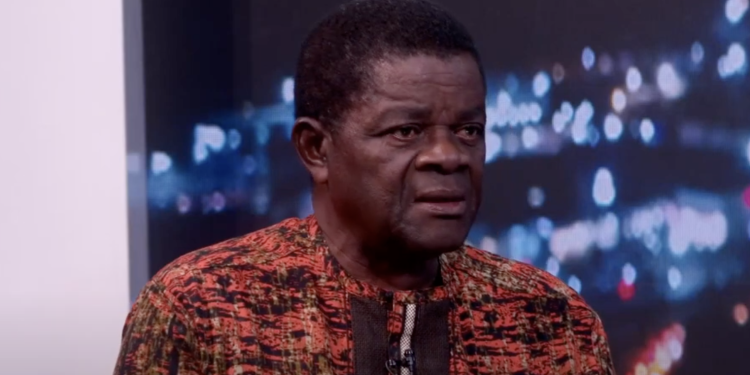
Ghana is producing law graduates who don’t know how to perform in court, according to former Director of the Ghana School of Law, Kwaku Ansa-Asare.
The veteran legal educator told Joy News’ PM Express on Monday, June 2, that the current system is failing to produce practice-ready lawyers.
“We are training lawyers who don’t know how to move a court,” he said bluntly.
“Your first day in court after being called to the Bar, the judge says, ‘You are before me, move the court.’ And you don’t even know how to do it. That’s a big problem.”
His remarks come amid growing debate over the Legal Education Bill, which seeks to reform aspects of the country’s legal training framework.
But for Mr Ansa-Asare, the proposed reforms are fundamentally flawed from the outset, starting with the name of the bill.
“In the first place, the title ‘Legal Education Bill’ is a little troubling,” he said.
“Legal education comprises both academic and professional training. If the government intends to decentralise and ensure all law faculties can train lawyers, then the bill must be about legal practice, not just legal education.”
[embedded content]According to him, the separation of academic and professional legal training has created a dangerous gap that leaves students unprepared for real-world practice.
“Our system is not integrated. For three years, we teach students the academic side—where to find the law, sources of law. Then we dump them into the Ghana School of Law for just two years to learn how to practise. It’s too late,” Mr Ansa-Asare warned.
He compared Ghana’s model to that of the United States, where the Juris Doctor (JD) system integrates academic and professional training from the outset.
“In the US, if you’re studying Contract Law, you also take negotiation, mediation, opinion writing, and drafting. But here, all that comes only in the final stretch, and by then, it’s not enough.”
He argued that this fragmented approach is why so many young lawyers struggle in courtrooms immediately after being called to the Bar.
“You’re taught theory, but no one shows you how to move a motion, how to draft a bail application, how to write an opinion. So you show up in court and stumble through basic procedures. It’s unfair to the students, and it’s bad for justice delivery.”
Kwaku Ansa-Asare called for a holistic reform that addresses both academic content and practical training, not a half-measure that tackles one and leaves the other for a future generation to fix.
“If we really want to fix the problem, the bill must cover every aspect—from how the law is taught in the universities to how it is practised in the courts. Otherwise, we’ll just be circling back to this debate again in a few years.”
DISCLAIMER: The Views, Comments, Opinions, Contributions and Statements made by Readers and Contributors on this platform do not necessarily represent the views or policy of Multimedia Group Limited.
DISCLAIMER: The Views, Comments, Opinions, Contributions and Statements made by Readers and Contributors on this platform do not necessarily represent the views or policy of Multimedia Group Limited.
- President Commissions 36.5 Million Dollars Hospital In The Tain District
- You Will Not Go Free For Killing An Hard Working MP – Akufo-Addo To MP’s Killer
- I Will Lead You To Victory – Ato Forson Assures NDC Supporters
Visit Our Social Media for More




